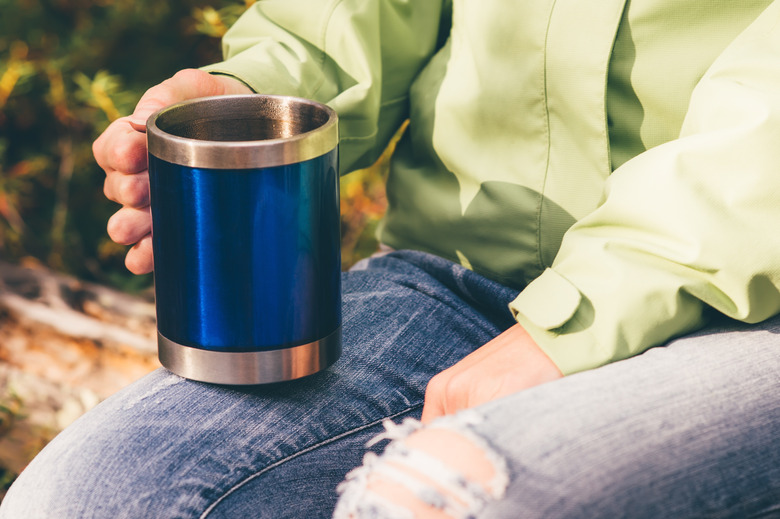The Best Insulators To Keep Water Hot
The correct insulating materials will keep liquid hot for long periods. Whether it's for the water boiler at home or a flask of coffee, a good insulator either reflects heat back to its source or blacks it from escaping. Poor insulators, also known as conductors, lose heat quickly. Examples of bad heat insulators include metals such as copper and steel, commonly used for radiators that conduct heat efficiently. There are a range of materials that can serve as insulators for hot water, each with its own application.
Fiberglass
Fiberglass
Fiberglass consists of strands of glass woven together to make a kind of fabric. The air pockets between the fibers make it hard for heat to escape. This material is commonly found in attic insulation, but is also used to keep water hot in the home. Pipes and older boilers used fiberglass jackets to keep heat from escaping.
Foam Insulation
Foam Insulation
Foam insulation is made from polymer plastic derived from crude oil. It is used in the same applications as fiberglass for keeping water hot, although it is more commonly found on pipe work. It insulates in much the same way by containing heat through the use of air pockets in the material.
Thermal Flask
Thermal Flask
Most campers and hikers know the value of a good-quality thermal flask to keep tea, coffee or drinking chocolate hot. The principle for this is simple: There are two bottles inside the flask made from metals or glass which reflect the heat back into the flask. The two layers are separated by a partial vacuum through which heat cannot pass. The solid walls of the flask can also be coated for improved efficiency.
Styrofoam
Styrofoam
Styrofoam is made in a similar way as foam insulation, but is used for making beverage containers. As with polymer foam, the insulating effect comes from tiny air pockets in the material. The insulating effect from Styrofoam is not quite as good as that of thermal flasks; Styrofoam's advantage lies mainly in its low cost.
Other Materials
Other Materials
Any good insulator will keep water hot given the right conditions. Ceramics, for example, are used to make coffee mugs as the material is a relatively good insulator. Corrugated cardboard is used by many coffee shops; the air pockets encased by the cardstock insulate the hot cup from the holder's hand and protects the customer from burns. Similarly, glass was originally used as an insulator in thermal flasks and coffee percolators.
Cite This Article
MLA
Green, Simon. "The Best Insulators To Keep Water Hot" sciencing.com, https://www.sciencing.com/insulators-keep-hot-water-10027507/. 9 March 2018.
APA
Green, Simon. (2018, March 9). The Best Insulators To Keep Water Hot. sciencing.com. Retrieved from https://www.sciencing.com/insulators-keep-hot-water-10027507/
Chicago
Green, Simon. The Best Insulators To Keep Water Hot last modified March 24, 2022. https://www.sciencing.com/insulators-keep-hot-water-10027507/
